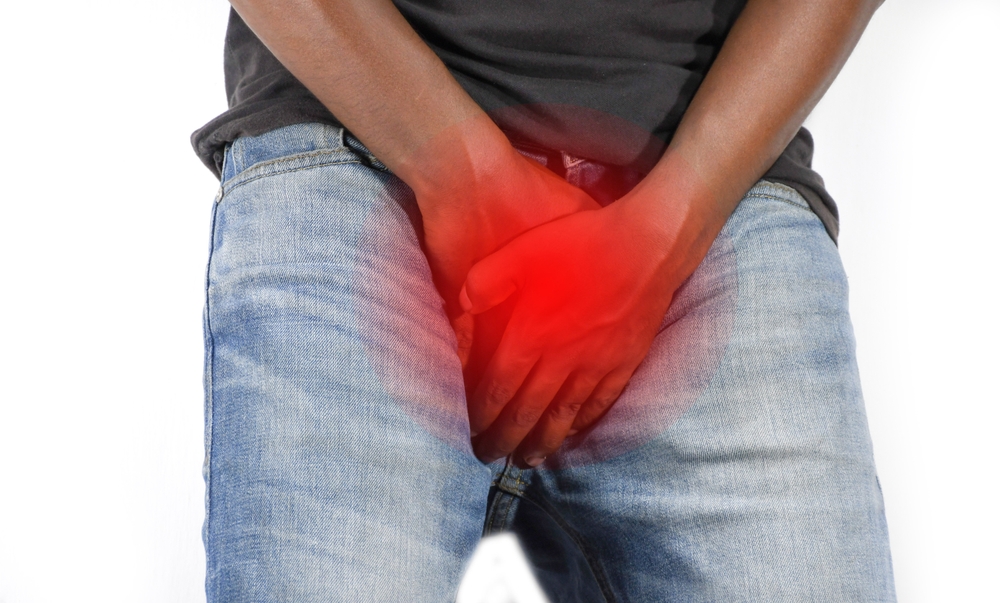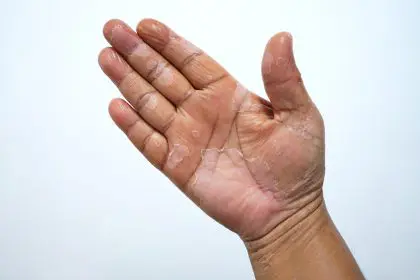Persistent itching in the genital area often indicates underlying health issues that require attention. Medical experts emphasize that while the topic might feel uncomfortable to discuss, understanding common causes can lead to faster relief and prevention of more serious conditions. Regular consultation with health care providers ensures proper diagnosis and treatment of these sensitive but important health concerns.
The hygiene factor
Poor hygiene and excessive moisture create ideal conditions for irritation and discomfort. Dermatologists note that sweat accumulation, particularly after physical activity or in warm weather, provides an environment where bacteria and fungi thrive. This situation often leads to persistent itching and potential skin infections if left unaddressed.
Medical professionals recommend daily cleansing with mild soap, especially after exercise or extended periods of physical activity. The choice of clothing plays a crucial role, with breathable cotton underwear helping reduce moisture retention. However, overly aggressive washing or the use of harsh soaps can worsen irritation by disrupting the skin’s natural balance, creating a cycle of increased sensitivity and discomfort.
Common skin conditions
Fungal infections, particularly jock itch, frequently cause persistent discomfort in the genital area. This condition typically presents as a red, scaly rash with clearly defined edges, often accompanied by intense itching that worsens in warm, humid conditions. Dermatologists also identify eczema, characterized by dry, itchy patches, as another common culprit affecting male genital health.
Both conditions respond well to appropriate medical intervention when properly diagnosed. Antifungal medications effectively address jock itch through both topical applications and, in severe cases, oral medications. Eczema might require specialized creams or ointments, often containing corticosteroids to reduce inflammation and itching. Persistent symptoms warrant professional evaluation to ensure proper diagnosis and treatment, as similar symptoms can indicate different underlying conditions.
Sensitivity and allergic reactions
The genital area’s sensitive skin readily reacts to various irritants, making it susceptible to allergic reactions and contact dermatitis. Dermatologists frequently encounter cases triggered by common household products, including laundry detergents containing strong fragrances and personal care products with alcohol or artificial dyes. Even certain fabric types may cause discomfort through direct contact or trapped moisture.
Switching to hypoallergenic products often provides significant relief for many patients. Medical experts recommend carefully evaluating all products that come into contact with the genital area, including laundry detergents, body washes, and even clothing materials. The process of identifying specific triggers may require time and patience, but eliminating irritants proves crucial for long-term comfort and health.
Grooming-related issues
Modern grooming habits can lead to significant irritation and discomfort in the genital area. Dermatologists regularly treat cases of folliculitis and ingrown hairs resulting from improper shaving techniques or aggressive hair removal methods. These conditions often create a cycle of irritation and inflammation that can persist without proper intervention.
Professional guidance suggests implementing proper grooming practices to minimize these issues. Using clean, sharp razors and shaving in the direction of hair growth significantly reduces the risk of irritation and ingrown hairs. Regular but gentle exfoliation helps prevent dead skin cells from trapping growing hairs, while proper moisturizing supports skin health and reduces inflammation.
Medical considerations
Persistent itching sometimes indicates more serious underlying health conditions requiring prompt medical attention. Endocrinologists note that diabetes can cause significant skin changes leading to increased irritation and susceptibility to infections. Additionally, infectious disease specialists emphasize that certain sexually transmitted infections may initially present as itching before other symptoms become apparent.
Health care providers strongly recommend seeking professional evaluation when symptoms persist despite basic care measures or when accompanied by additional concerns such as changes in skin appearance, unusual discharge, pain, or swelling. Early detection and treatment of underlying medical conditions can prevent complications and provide faster relief through appropriate medical intervention.
Long-term management and prevention
Understanding personal triggers and maintaining proper hygiene practices helps prevent recurrence of genital itching. Health care providers recommend establishing a consistent care routine that includes gentle cleansing, appropriate product selection, and regular monitoring for any changes in skin condition. This proactive approach allows for early intervention when issues arise.
Regular medical check-ups ensure that any developing conditions receive prompt attention while maintaining overall genital health. Health care professionals emphasize that discussing these concerns with qualified medical providers leads to better outcomes and prevents unnecessary suffering from treatable conditions.
The path to relief begins with understanding that genital itching, while common, should not be ignored or dismissed as merely inconvenient. Through proper medical guidance, appropriate hygiene practices, and attention to potential triggers, men can effectively manage and prevent this uncomfortable condition while maintaining optimal health.
This story was created using AI technology.













